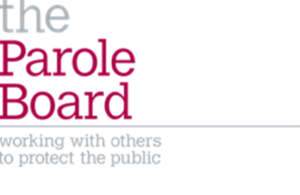Speech: Expanding UK’s diplomatic, defense and development assistance in the Sahel region
Thank you Mr President.
Thank you to Special Advisor Thiaw for briefing us today. We are pleased to hear of the progress made to operationalise and deliver the Integrated Strategy for the Sahel. You and your team deserve real credit for the 2018 Support Plan, which has rightly prioritised getting better coordination between agencies and improved buy-in from the governments and people of the Sahel region.
Mr President, as I think Mr Thiaw’s briefing has established, the Integrated Strategy has been through an important and formative year. The Support Plan has helped highlight the need to be realistic and targeted in our ambitions, and serves as a reminder that despite some very difficult challenges, the Sahel is also full of opportunities. The more that can be done to unlock the potential of the Sahel – particularly through support to education, jobs and family planning – the more we will see young entrepreneurs and young leaders finding local solutions to the challenges they face, including to the challenges of climate change.
We are therefore delighted to see the international community and the UN system redoubling its efforts through UNISS, seeking to learn from the challenges of the last five years, and taking a more deliberative partnership approach with the countries and peoples of the region. The Security Council has previously discussed the risk of UNISS seeming distant or disconnected from the realities of the region, so we welcome the increased focus on local engagement, particularly with girls and women.
Similarly, the past few years have shown the need to be realistic, patient, and ensure that major pledges and announcements are matched with sufficient people, resources, and capabilities to actually deliver in the region. This has not always been the case, and there is much that could be done centrally from New York to ensure existing resources are fully mobilised, and that coordination mechanisms in country are working as effectively as possible. In particular, we would highlight the need to deploy the best people to the toughest problems in the region itself.
Mr. President, we also need to ensure that the development agenda is working closely with other institutions and sectors, particularly those focused on defence and security. It is trite but true that there can be no development without stability, nor vice versa, so we would encourage more frequent and honest conversations between the development and security sectors in the Sahel. It is notable that West Africa and the Sahel region in particular are attracting ever more international solidarity and support – which is absolutely right and arguably overdue – but we need to ensure that organisational mandates are clear and strong lines of communication are set up between them.
Mr. President, the UK is in the process of expanding its diplomatic, defence, and development assistance to the Sahel region. We believe this will enable us to fully explore the links and opportunities, and build up an approach that knits together our security, diplomatic, development and humanitarian work.
We are opening new embassies in Niger and Chad, increasing our presence in Mali, and have already deployed 3 Chinook helicopters to provide logistical support to the G5 Joint Force through Operation Barkhane. In the coming years, we will also be significantly increasing our development assistance to the region. We see an approach that joins up the immediate and lifesaving aid to long term development and security outcomes as critical to changing the Sahel’s current trajectory. This demands UN leadership, and I am pleased to hear that UNISS will be entering 2019 in a better state to deliver this.
